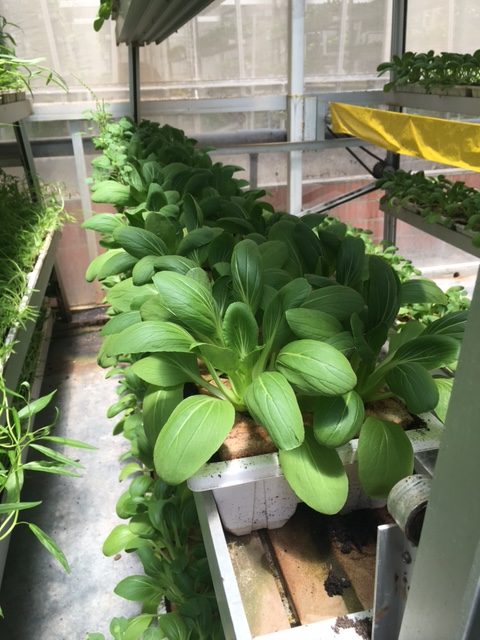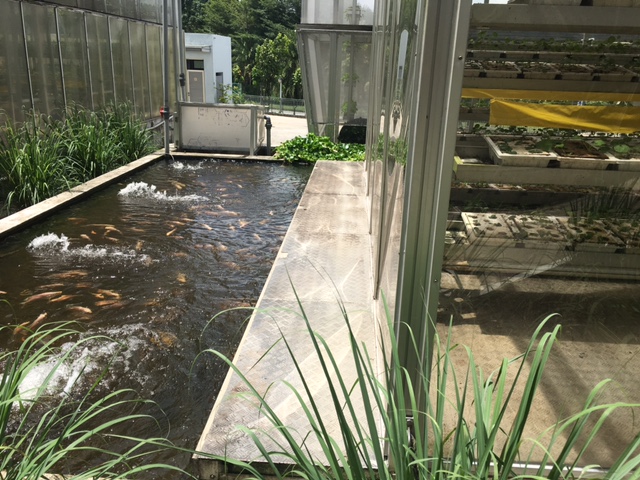Vertical Farming, utilizing applied Indoor Controlled Agriculture methods, is a burgeoning solution to the inherent challenge of feeding the ever expanding population. New frameworks in plant production, found in both the horizontal and vertical realms, are inspiring communities around the globe. As the founder of one of Vertical Harvest, one of the first vertical farms in the US, I am amazed that world wide today there are over 250 other vertical farms slated to be up and running in the next year. The growth is overwhelming! The beauty of most of these systems is that they bring food closer to the consumer, add value to the existing real estate market and expand diverse work opportunities to the agricultural industry.
As the number of businesses growing food in a non-field based setting increases at a rapid rate, it is hard to say which system is the best. When speaking about Vertical Harvest, I am often asked about the possibility of replication, which has been a dream since the inception of the concept. After having been through early start-up, I know now that replication is entirely situational, based on the location and impacted community. Which system supports the needs of the larger population either through employment opportunities or by supplying fresh produce? Which systems can sustainable a legitimate business model? Which systems can offer significant input into the food demands of the populace? Which system is scaleable in a reasonable manner?
I recently visited Sky Green Farms based in Singapore. Singapore is a country that has transformed itself drastically from a third world to a first world global economy over an impressive 50 years, becoming one of the most business and technology ready cities on the globe. I was stunned by the natural environment that has been kept intact, as well as the manufactured landscape found in cultural sights such as Gardens By The Bay. What has not kept pace with this incredible development is local food production. Sitting on the northern edge of the dense cityscape of Singapore, Sky Green Farms is a transformative vertical farm that represents a portion of the remaining .5% of farmland available in this island city-state. This farm comprises a part of the 8% of local food production that supplies the 5.5 million residents with fresh produce. As the owner and founder of an innovative growing system similar in form to Sky Green Farms, visiting their site has been a dream of mine for years. It was grounding and like being with a kindred soul to visit this greenhouse.
Sky Green Farms’ growing systems are incredibly functional, cost effective to produce and operate, and are appropriate for their local climate. The aquaponic/hydroponic model has been fully functioning for the past five years with great success. Sky Green Farms has created flexible hydroponic growing systems that can be installed in parking lots or on rooftops to allow for ultimate space utilization. All of the produce grown at the farm is sold through a local grocery store partner. Primarily growing Asian greens for the local population, the company will benefit as they expand their marking efforts to emphasize the value created from this fresh, pesticide-free product.
Also inspiring and highly valuable is the on-site kitchen/cafeteria where all employees gather to eat their meals, as well as the housing that is provided for their integral farm workers in this city where housing costs are comparable to New York City or San Franciso. This sense of community culture is a model for any business.
It will be exciting to follow Sky Green Farms as they expand their greenhouses around the globe and they continue the conversation about what is possible!

Sky Green Farms Bok Choy

